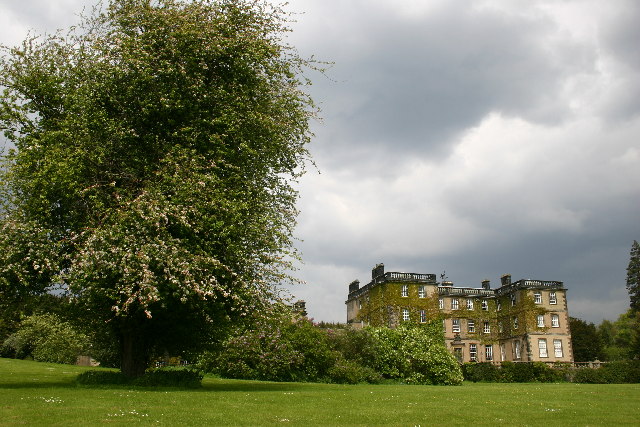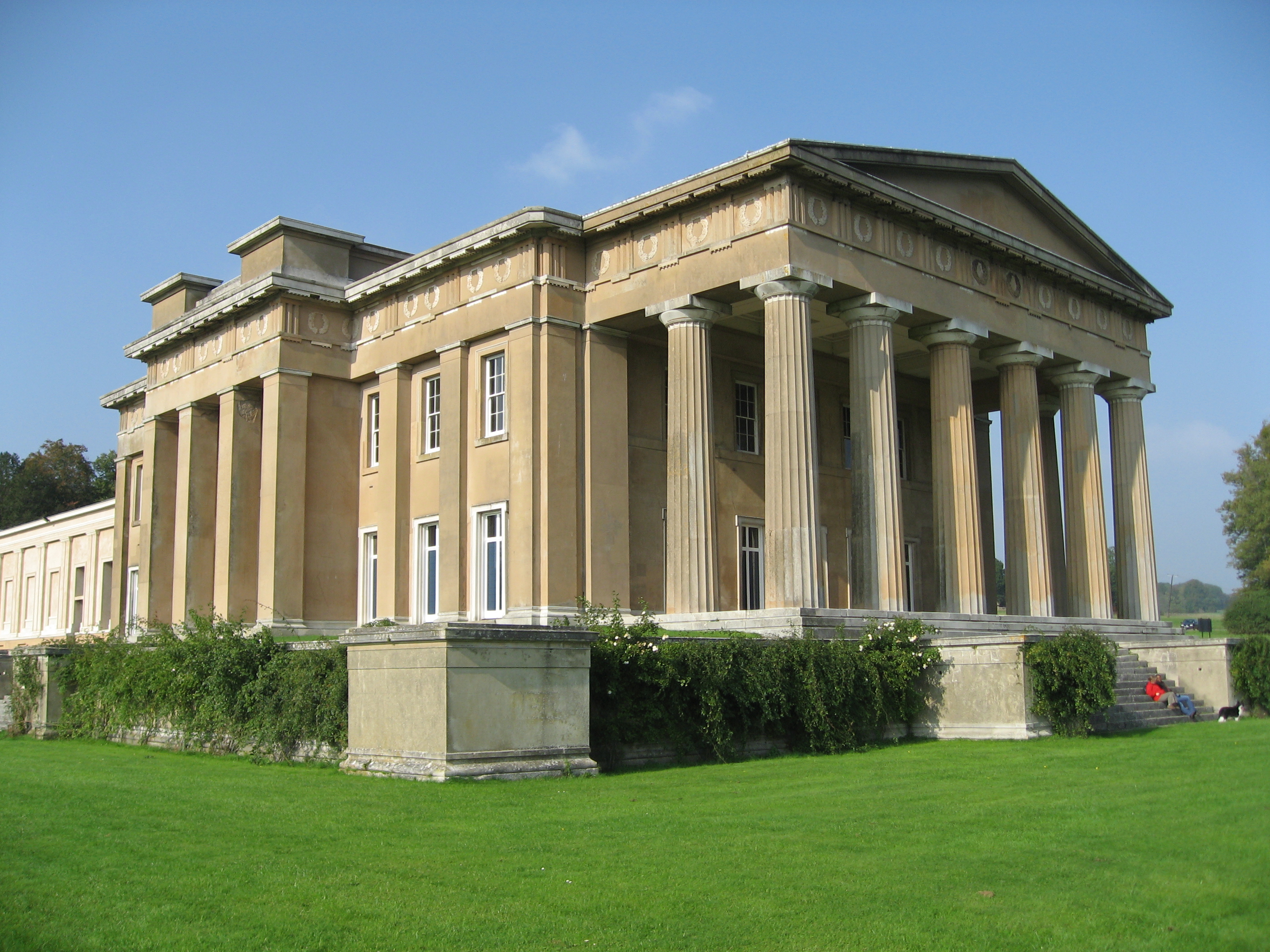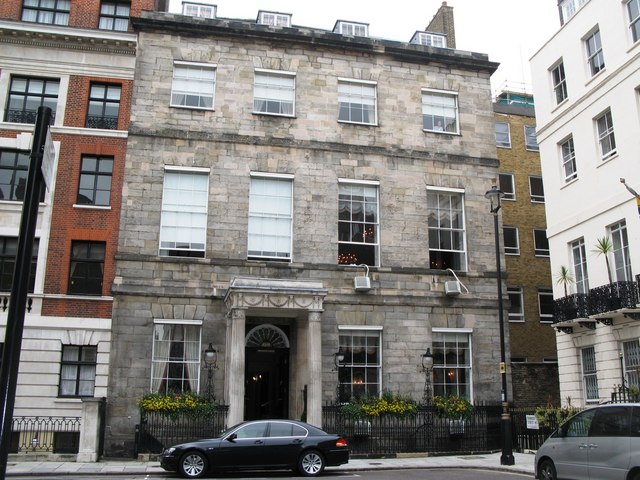|
Lord Lieutenant Of Hampshire
This is a list of people who have served as Lord Lieutenant of Hampshire. Since 1688, all the Lords Lieutenant have also been Custos Rotulorum of Hampshire. From 1889 until 1959, the administrative county was named the County of Southampton. *William Paulet, 1st Marquess of Winchester 1551–? *William Paulet, 3rd Marquess of Winchester bef. 1585 – 24 November 1598 ''jointly with'' *Henry Radclyffe, 4th Earl of Sussex 3 July 1585 – 14 December 1593 * Charles Blount, 1st Earl of Devonshire 4 August 1595 – 3 April 1606 ''jointly with'' * George Carey, 2nd Baron Hunsdon 29 October 1597 – 8 September 1603 ''and'' *Henry Wriothesley, 3rd Earl of Southampton 10 April 1604 – 10 November 1624 *Edward Conway, 1st Viscount Conway 9 May 1625 – 3 January 1631 *Richard Weston, 1st Earl of Portland 8 February 1631 – 13 March 1635 *James Stewart, 1st Duke of Richmond 29 May 1635 – 1642 ''jointly with'' *Jerome Weston, 2nd Earl of Portland 29 May 1635 – 1642 ''and'' *Thomas Wrio ... [...More Info...] [...Related Items...] OR: [Wikipedia] [Google] [Baidu] |
Lord Lieutenant
A lord-lieutenant ( ) is the British monarch's personal representative in each lieutenancy area of the United Kingdom. Historically, each lieutenant was responsible for organising the county's militia. In 1871, the lieutenant's responsibility over the local militia was removed. However, it was not until 1921 that they formally lost the right to call upon able-bodied men to fight when needed. Lord-lieutenant is now an honorary titular position usually awarded to a retired notable person in the county. Origins England and Wales Lieutenants were first appointed to a number of English counties by King Henry VIII in the 1540s, when the military functions of the sheriffs were handed over to them. Each lieutenant raised and was responsible for the efficiency of the local militia units of his county, and afterwards of the yeomanry and volunteers. He was commander of these forces, whose officers he appointed. These commissions were originally of temporary duration, and only when the ... [...More Info...] [...Related Items...] OR: [Wikipedia] [Google] [Baidu] |
Wriothesley Noel, 2nd Earl Of Gainsborough
Wriothesley Baptist Noel, 2nd Earl of Gainsborough (c. 1661 – 21 September 1690) was an English peer and Member of Parliament, styled Viscount Campden from 1683 to 1689. Early life Wriothesley Noel was born circa 1661. He was the son of Edward Noel, 1st Earl of Gainsborough. Career Noel inherited the Earldom of Gainsborough in 1689. He was the MP for Hampshire 1685–1689. He was the Lord Lieutenant of Hampshire and Lord Lieutenant of Rutland. Personal life, death and legacy Noel married Catherine Greville, daughter of Fulke Greville, 5th Baron Brooke of Beauchamps Court and Sarah Dashwood. He had no male heirs. His daughter Elizabeth married Henry Bentinck, who was created the 1st Duke of Portland in 1716. Noel died on 21 September 1690. He was succeeded by his cousin, Baptist Noel, 3rd Earl of Gainsborough Baptist Noel, 3rd Earl of Gainsborough (1684 – 17 April 1714) was an English peer and Member of Parliament. Early life Baptist Noel was born in 1684. He was the ... [...More Info...] [...Related Items...] OR: [Wikipedia] [Google] [Baidu] |
George Paulet, 12th Marquess Of Winchester
George Paulet, 12th Marquess of Winchester (7 June 1722 – 22 April 1800), known as George Paulet or Powlett until 1794, was an English courtier and nobleman. Early life Paulet was the eighth and youngest son of Norton Powlett or Paulet (d. 1741), of Amport, himself a grandson of Lord Henry Paulet, of Amport, whose father was William Paulet, 4th Marquess of Winchester. George Paulet was a third cousin once removed of Harry Powlett, 4th Duke of Bolton, a man who had sons, and he was himself the youngest of many sons, so in his early life there seemed almost no prospect of the inheritance which eventually came to him. Career Paulet held a series of court appointments. On 29 October 1750, he was appointed an Extra Gentleman Usher to Frederick, Prince of Wales, and served until the Prince's death in 1751. From 1758 to 1772, he was a Gentleman Usher to Frederick's widow, Augusta, Dowager Princess of Wales. In 1759, Charles Powlett, 5th Duke of Bolton, a man a few years older ... [...More Info...] [...Related Items...] OR: [Wikipedia] [Google] [Baidu] |
Harry Powlett, 6th Duke Of Bolton
Admiral Harry Powlett, 6th Duke of Bolton PC (6 November 1720 – 25 December 1794) was a British nobleman and naval officer. Origins He was the second son of Harry Powlett, 4th Duke of Bolton by his wife Catherine Parry. Career He was educated at Winchester College (1728–1729). He joined the Royal Navy, and on 4 March 1740 was promoted lieutenant aboard . He was promoted captain of on 15 July 1740, and was moved to in July 1741. While commanding ''Oxford'', in 1744 he took part in the Battle of Toulon, and later gave damaging evidence against Richard Lestock. He was moved to in March 1745, and shortly thereafter to . On 11 April 1746 ''Ruby'', with and , was dispatched from Plymouth to join the fleet off Brest, France. Before finding the fleet under Admiral William Martin on 22 May, he was able to capture the French frigate ''Embuscade''. He was given command of in November 1746 and was sent to the East Indies to serve under Rear-Admiral Thomas Griffin and Admiral E ... [...More Info...] [...Related Items...] OR: [Wikipedia] [Google] [Baidu] |
George Pitt, 1st Baron Rivers
George Pitt, 1st Baron Rivers (1 May 1721 – 7 May 1803) was an English diplomat and politician. Background and education He was born in Geneva, the eldest son of George Pitt of Stratfieldsaye (today rendered Stratfield Saye), Hampshire, and his wife Mary Louise Bernier from Strasbourg. General Sir William Augustus Pitt was his younger brother. He was educated at Winchester, with attendance recorded in 1731, and matriculated on 26 September 1737 at Magdalen College, Oxford, being awarded an MA on 13 March 1739 and a DCL on 21 August 1745. He travelled on the continent from 1740 to 1742 and succeeded his father in 1745. He inherited Stratfield Saye House in Hampshire, making extensive alterations to the house and park. Politics Soon after returning from Europe, he was elected Member of Parliament at a by-election for Shaftesbury that followed the death of Charles Ewer, and sat as a Tory. He voted with the opposition during the War of the Austrian Succession against the em ... [...More Info...] [...Related Items...] OR: [Wikipedia] [Google] [Baidu] |
Robert Henley, 1st Earl Of Northington
Robert Henley, 1st Earl of Northington, PC (c. 1708 – 14 January 1772), was the Lord High Chancellor of Great Britain. He was a member of the Whig Party in the parliament and was known for his wit and writing. Family Born the second son of Anthony Henley, Robert Henley was from a wealthy family in Hampshire. His grandfather, Sir Robert Henley, had been Master of the Court of the King's Bench, essentially a defence counsel. Henley's father Anthony Henley was educated at Oxford and interested in literature. When he moved to London, he became the friend of the Earls of Dorset and Sunderland, as well as a friend of Swift, Pope, and Burnet. After becoming a married man, Anthony Henley had been the Member of Parliament for Andover in 1698. He died in August, 1711 and was succeeded in turn by his eldest son, Anthony and his second son, Robert. Early life Henley was educated at Westminster School and attended St. John's College in Oxford. He gained a fellowship at the All Souls ... [...More Info...] [...Related Items...] OR: [Wikipedia] [Google] [Baidu] |
James Brydges, 3rd Duke Of Chandos
James Brydges, 3rd Duke of Chandos PC (27 December 1731 – 29 September 1789), styled Viscount Wilton from birth until 1744 and Marquess of Carnarvon from 1744 to 1771, was a British peer and politician. Background Chandos was the only son of Henry Brydges, 2nd Duke of Chandos, and Lady Mary Bruce, daughter of Charles Bruce, 3rd Earl of Ailesbury. He was educated at Westminster School from 1742 to 1749, and then at Göttingen University in 1750/1751. Political career Chandos was Member of Parliament for Winchester from 1754 to 1761 and for Radnorshire between 1761 and 1768.G.E. Cokayne; with Vicary Gibbs, H.A. Doubleday, Geoffrey H. White, Duncan Warrand and Lord Howard de Walden, editors, ''The Complete Peerage of England, Scotland, Ireland, Great Britain and the United Kingdom, Extant, Extinct or Dormant, new ed.'', volume III, page 45 He succeeded in the dukedom upon the death of his father on 28 November 1771. He was a Gentleman of the Bedchamber to George, Princ ... [...More Info...] [...Related Items...] OR: [Wikipedia] [Google] [Baidu] |
Charles Powlett, 5th Duke Of Bolton
Lieutenant-general Charles Powlett, 5th Duke of Bolton (c. 1718 – 5 July 1765), styled Marquess of Winchester from 1754 to 1759, was a British soldier, nobleman and Whig politician. Early life He was the eldest son of Harry Powlett, 4th Duke of Bolton and Catherine Parry. Career Educated at Winchester, he joined the British Army and became a lieutenant-colonel in 1745. Powlett was a Groom of the Bedchamber to Frederick, Prince of Wales from 1749 until the Prince's death in 1751. He had been promoted lieutenant general by 12 March 1752, when he was made a KB. Upon the succession of his father to the Dukedom in December 1754, he became known as Marquess of Winchester, and he left his seat at Lymington to succeed his father in Hampshire. He would remain member for that county until his succession as Duke of Bolton in 1759. On 22 December 1758, he was sworn of the Privy Council. Personal life Lord Bolton never married, however, he had a child with Mary Browne Banks: * Jean ... [...More Info...] [...Related Items...] OR: [Wikipedia] [Google] [Baidu] |
Harry Powlett, 4th Duke Of Bolton
Harry Powlett, 4th Duke of Bolton PC (24 July 1691 – 9 October 1759), known until 1754 as Lord Harry Powlett, was a British nobleman and Whig politician. He sat in the House of Commons from 1715 to 1754, when he took his seat in the House of Lords. Early life Born the second son of Charles Paulet, 2nd Duke of Bolton and Frances Ramsden, Powlett started his career in the Royal Navy. He served as an ADC to the Earl of Galway in Portugal, in 1710 during the closing stages of the War of the Spanish Succession. Political career Powlett was elected at the 1715 general election as a Member of Parliament (MP) for St Ives in Cornwall. He held the seat until the 1722 general election, when he was returned as MP for Hampshire. He held that seat until he succeeded to the peerage in 1754, with one interruption. At the 1734 general election he was returned both for Hampshire and for Yarmouth. A petition was lodged against the Hampshire result, and he sat for Yarmouth until 1737 when t ... [...More Info...] [...Related Items...] OR: [Wikipedia] [Google] [Baidu] |
Charles Powlett, 3rd Duke Of Bolton
Charles Powlett (sometimes spelled Paulet), 3rd Duke of Bolton (3 September 168526 August 1754), styled Earl of Wiltshire from 1685 until 1699, and Marquess of Winchester from 1699 until 1722, was a British landowner and Whig politician who sat in the English House of Commons from 1705 to 1708 and in the British House of Commons between 1708 and 1717, when he was raised to the peerage as Lord Powlett and sat in the House of Lords. Early life Powlett was born in 1685 at Chawton, Hampshire, the eldest son of Charles Paulet, 2nd Duke of Bolton, and his second wife Frances Ramsden, daughter of William Ramsden of Byram, Yorkshire. He was educated at Enfield School although his father had to remove him in 1699 for absenteeism and unruly behaviour. He travelled abroad with Anthony Ashley from 1700 to 1704. In 1705 he was a volunteer in the Portuguese campaign. Political career Powlett was home in time to stand successfully as Whig at a by-election for Lymington on 7 December 1705. ... [...More Info...] [...Related Items...] OR: [Wikipedia] [Google] [Baidu] |
John Wallop, 1st Earl Of Portsmouth
John Wallop, 1st Earl of Portsmouth (15 April 1690 – 22 November 1762), of Hurstbourne Park, near Whitchurch and Farleigh Wallop, Hampshire, known as John Wallop, 1st Viscount Lymington from 1720 to 1743, was a British politician who sat in the House of Commons from 1715 to 1720, when he vacated his seat on being raised to the peerage as Viscount Lymington and Baron Wallop. Early life Wallop was the third son of John Wallop, of Farleigh Wallop and his wife Alicia, daughter of William Borlase. The Wallops were an old and influential Hampshire family; his great-grandfather was the regicide Robert Wallop. His father died about 1694, and he succeeded an elder brother, Bluett Wallop, in the family estates in 1707. Wallop was educated at Eton in 1708, in Geneva from 1708 to 1709, and took his Grand Tour through Italy and Germany in 1710. Political career In 1715, Wallop was returned as a Whig Member of Parliament for both Andover, where a family interest existed, and Hampshire, choo ... [...More Info...] [...Related Items...] OR: [Wikipedia] [Google] [Baidu] |
Charles Paulet, 3rd Duke Of Bolton
Charles Powlett (sometimes spelled Paulet), 3rd Duke of Bolton (3 September 168526 August 1754), styled Earl of Wiltshire from 1685 until 1699, and Marquess of Winchester from 1699 until 1722, was a British landowner and Whig politician who sat in the English House of Commons from 1705 to 1708 and in the British House of Commons between 1708 and 1717, when he was raised to the peerage as Lord Powlett and sat in the House of Lords. Early life Powlett was born in 1685 at Chawton, Hampshire, the eldest son of Charles Paulet, 2nd Duke of Bolton, and his second wife Frances Ramsden, daughter of William Ramsden of Byram, Yorkshire. He was educated at Enfield School although his father had to remove him in 1699 for absenteeism and unruly behaviour. He travelled abroad with Anthony Ashley from 1700 to 1704. In 1705 he was a volunteer in the Portuguese campaign. Political career Powlett was home in time to stand successfully as British Whig Party, Whig at a by-election for Lymington (U ... [...More Info...] [...Related Items...] OR: [Wikipedia] [Google] [Baidu] |



_p2.074_-_Hackwood_Park%2C_Hampshire.jpg)
